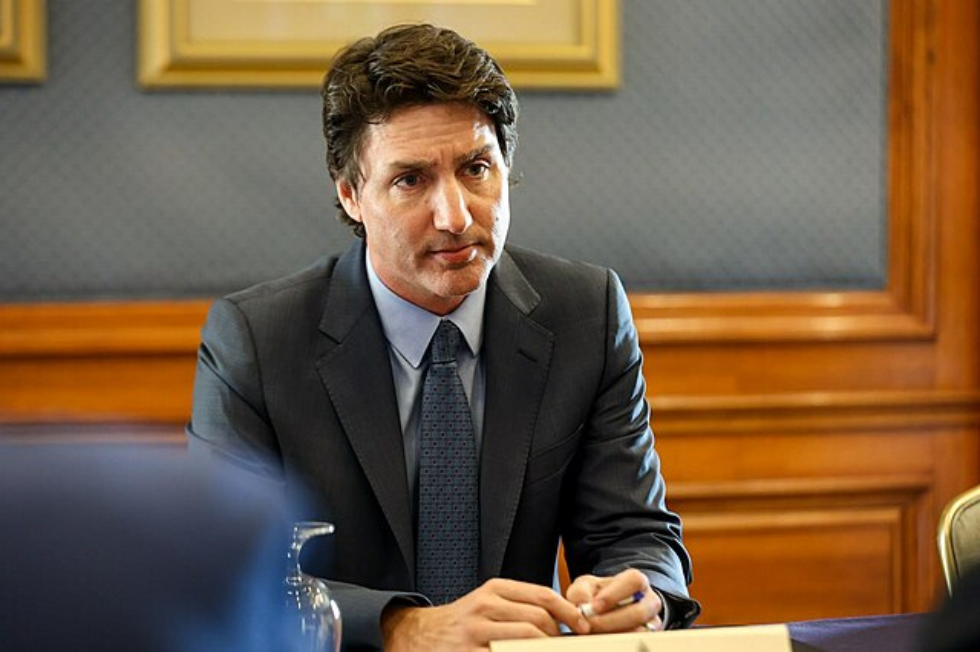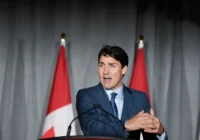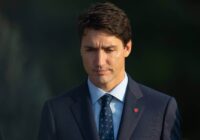Justin Trudeau will soon, after nearly a decade in power, cede his position as the prime minister of Canada.
Yes, this is the same Trudeau who entered the Canadian political scene like an atomic bomb when he inherited the dispirited Liberal Party, which had won only 34 seats after suffering a historic third-place defeat under the leadership of Michael Ignatieff. It was undoubtedly the lowest point for a party once considered Canada’s natural ruling party, which had failed to retain its place as the official opposition.
This is the same Trudeau who managed to reinvigorate that ailing party with an unprecedented wave of excitement and optimism — not just within the Liberal base, but even among the broader electorate. This excitement and optimism carried him in 2015 to a 150-seat reversal from 2011, securing a commanding majority in the House of Commons. This wave of energy arguably propelled him to other victories in 2019 and 2020, albeit with minority governments, yet still with enough staying power to rule for nearly a decade and become one of the longest-serving prime ministers in Canadian history.
But now, Trudeau has announced his resignation, largely in disgrace and largely disliked by his own people. Such a stunning fall from grace naturally raises questions about how this happened. The answers are largely simple: Life in Canada got worse under Trudeau.
No scandal defeated Trudeau
For those of us who experienced the excitement of Trudeaumania 2.0, it feels almost surreal to see how far the teacher-turned-politician has fallen. When Trudeau was first elected, he seemed to be a force that couldn’t be stopped — only slowed down. This was evident even in one of his earliest scandals, when he was criticized for his elaborate wardrobe choices during a trip to India. While it may have been a foolish move, it wasn’t substantial enough to significantly affect Canadian politics at the time.
It wasn’t until the SNC-Lavalin scandal broke that public perception really began to shift. Trudeau suffered his first black eye, but it was not fatal. After all, he would go on to win two more elections in the following years. He would get many more black eyes, some as significant as allegations of foreign interference in Canadian democracy, but none of them appeared to fell the phoenix that resurrected the Liberals in 2015.
In fact, it is unlikely that any scandal or group of scandals truly brought down Trudeau; no ethics inquiry or political gaffe was ever deadly. No, what ultimately ended up doing him in was poor governance. He fell because, when people like me wake up, we’re scared of the future instead of excited. In lieu of hope, we feel fear, and in lieu of optimism, we feel pessimism.
Life got worse
This pessimism is best evidenced by the very real and pressing housing crisis. A full 88% of Canadian renters feel they will never own a home, and they may very well be right. It is, after all, a well-known fact that Canadian population growth now far outpaces our housing construction. This problem has been exacerbated by Trudeau’s reckless immigration policies, which he was warned about but pursued anyway, prioritizing ideological concerns over the wellbeing of his own citizens.
But somehow, housing isn’t even the top concern for many Canadians, who are now struggling just to eat. Amid the cost-of-living crisis, Canadian food bank usage has hit its highest level in recorded history, a full 90% increase from 2019.
Of course, all these hardships assume that you will live long enough in Canada to experience them. Under Trudeau, healthcare has reached a breaking point. In New Brunswick, where I live, people are dying in waiting rooms. This province is hardly an anomaly. Wait times in Ontario emergency rooms averaged 22 hours this past December. Outside the emergency room, it doesn’t get much better. Under Trudeau, the number of Canadians with access to a family doctor has fallen below half. Even those with a doctor face surgery backlogs and delays.
It feels like every aspect of Canadian life that we value — housing, food, medicine — has gotten substantially worse under Trudeau.
Trudeau’s policies damaged Canada
Now, to be fair to the disgraced prime minister, he has been, to some extent, at the mercy of global forces beyond his control. After all, he was not the one to start COVID-19. But aside from potential human rights violations from the unjustified use of the Emergencies Act, Trudeau has had significant agency in many of these issues. Take immigration, for example. Trudeau’s immigration policies have been so aggressive that Canada now faces the risk of being caught in a population trap, a ludicrous problem for any developed nation to have.
Or consider how Trudeau’s ecological policies have killed investment in many lucrative Canadian businesses while failing to attract investments to other sectors, leading to a 7.3% decline in business investment in Canada when adjusted for inflation. Or how Trudeau has overseen a six-quarter real GDP decline, which he has managed to mask with immigration and public spending. Or how his own right-hand woman subtly accused him of “political gimmicks” in her resignation letter.
The examples are endless, and the conclusion is the same: Regardless of what the world has done, Trudeau has not helped. In fact, he seems to have made it worse.
The question of why Trudeau had to resign is very simple: He either made or oversaw a sinking quality of life for Canadians. Even if it wasn’t entirely his fault, any leader who oversees a decrease in the standard of living should expect to be booted from office. The interesting question isn’t why did Trudeau fall — ask any average Canadian and they’ll tell you in detail. The real question is: Why and how did he hold on so long?
[Lee Thompson-Kolar edited this piece.]
The views expressed in this article are the author’s own and do not necessarily reflect Fair Observer’s editorial policy.
Support Fair Observer
We rely on your support for our independence, diversity and quality.
For more than 10 years, Fair Observer has been free, fair and independent. No billionaire owns us, no advertisers control us. We are a reader-supported nonprofit. Unlike many other publications, we keep our content free for readers regardless of where they live or whether they can afford to pay. We have no paywalls and no ads.
In the post-truth era of fake news, echo chambers and filter bubbles, we publish a plurality of perspectives from around the world. Anyone can publish with us, but everyone goes through a rigorous editorial process. So, you get fact-checked, well-reasoned content instead of noise.
We publish 2,500+ voices from 90+ countries. We also conduct education and training programs
on subjects ranging from digital media and journalism to writing and critical thinking. This
doesn’t come cheap. Servers, editors, trainers and web developers cost
money.
Please consider supporting us on a regular basis as a recurring donor or a
sustaining member.
Will you support FO’s journalism?
We rely on your support for our independence, diversity and quality.







Comment